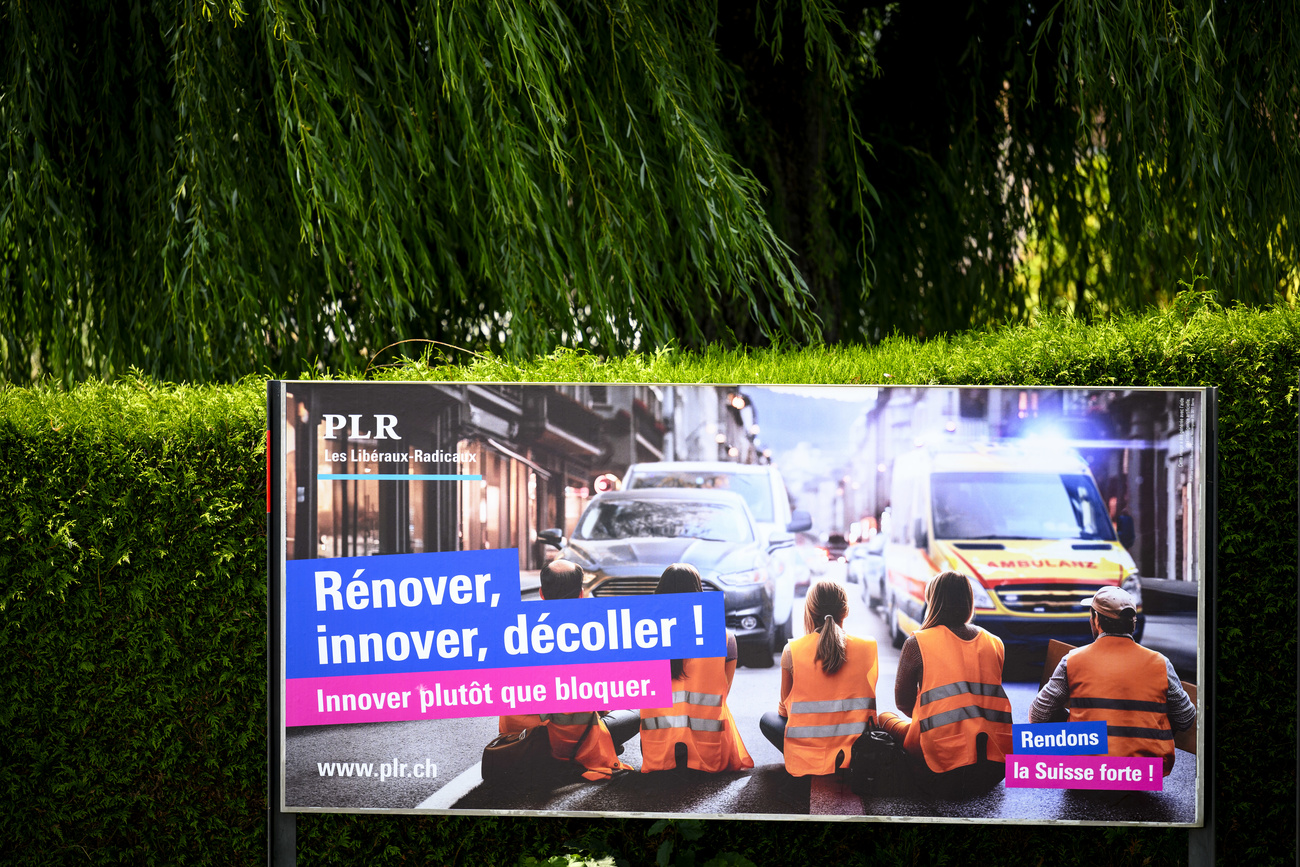
Swiss political parties agree to limit use of AI ahead of elections

Five Swiss political parties have signed a code of conduct agreeing to limit the use of artificial intelligence (AI) in their campaigns for the October 22 federal elections.
The signatories include the Social Democratic Party, the Centre Party, the Green Party, the Liberal Green Party and the Protestant Party.
In a press release released on Monday, they asked their cantonal sections to stick to the code of conduct, which states that any use of AI during political campaigns (recorded adverts, posters, advertisements) must be explicitly declared. In addition, the parties forbid the use of AI in so-called “negative” campaigns, in which they attack their political opponents.
AI represents an opportunity by enabling new forms of communication, they state. But it also presents dangers, potentially making it possible to distort facts or attribute things to certain (political) actors that they would not have said.
+ Swiss political parties, election campaigns and AI
The Radical-Liberal Party did not sign the charter but undertakes to ban any abusive use of AI, for example via “deepfakes” (fake), it said in a statement.
A deepfake can be used to superimpose existing video or audio files on other files to change a person’s face or reproduce someone’s voice to make them say something invented.
The Radical-Liberals say it is “absurd” to want to ban AI in “negative campaigns”, even though identical visual effects can be obtained via Photoshop. Furthermore, the definition of a “negative campaign” (in which one attacks or damages the opponent) remains subject to discussion.
The Swiss People’s Party, for its part, refuses to make any commitments on the issue. Party general secretary and national councillor Peter Keller told Swiss public radio, SRF, that the boundaries of what constitutes a “negative campaign” are blurred, and anyone who uses AI crudely gets caught and pays the price, he said.
This news story has been written and carefully fact-checked by an external editorial team. At SWI swissinfo.ch we select the most relevant news for an international audience and use automatic translation tools such as DeepL to translate it into English. Providing you with automatically translated news gives us the time to write more in-depth articles. You can find them here.
If you want to know more about how we work, have a look here, and if you have feedback on this news story please write to english@swissinfo.ch.

In compliance with the JTI standards
More: SWI swissinfo.ch certified by the Journalism Trust Initiative



























You can find an overview of ongoing debates with our journalists here . Please join us!
If you want to start a conversation about a topic raised in this article or want to report factual errors, email us at english@swissinfo.ch.